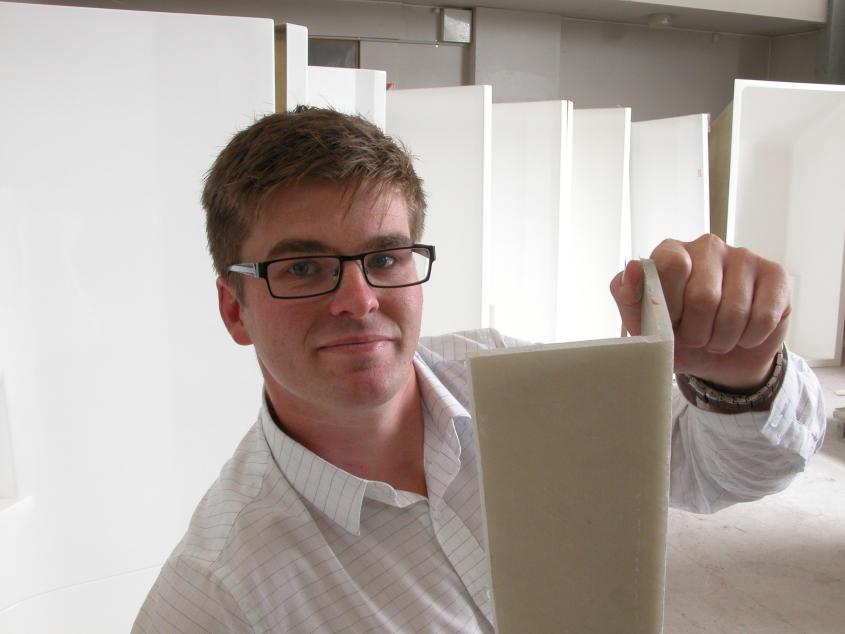Leading composites engineering company Aeromarine Industries of Timaru is preparing to join the Christchurch rebuilding effort as Canterbury companies and industries look for partners. Aeromarine has fast-tracked technologies and products to help builders, farmers, local government and the private sector source easily installed and durable fixtures and fittings. The Timaru-based company is answering the call of Canterbury Chamber of Commerce chief executive Peter Townsend who this week hosted the company and other local businesses to a presentation on the ongoing needs of a region in rebuild mode. Mr Townsend said the task was of unimaginable proportions and was likely to stretch over at least 20 years at a total cost of more than $30 billion. “To give you an idea, we have lost in Christchurch about an Ashburton of residential with 1360 commercial buildings destroyed among about 2000 buildings in total,” Mr Townsend said. “That means we will have to open a new commercial building every three days for the next ten years to get back to where we were.”
Aeromarine Industries operations manager Simon Robb, together with French composite structural design expert Ben Lisle who is presently seconded to the company, attended the presentation. Mr Robb said he had fast-tracked the manufacture of building components such as showers, and infrastructure such as septic tanks to help meet “the unbelievable demand that is just around the corner when insurance companies finally start releasing payments”. He said Aeromarine would partner with Christchurch businesses, manufacturers and local government to keep the Canterbury economy flowing. He welcomed approaches from Canterbury companies looking for the strength of steel in non-corrodible fibreglass, especially in below-ground applications such as piping and holding tanks where clay and ceramic pipes were too brittle in a seismic zone. “And above ground, too, for example we have just completed design and competitive pricing work around a range of fibreglass bus shelters that offer local authorities not just durability, but advances in surface treatments that reduce damage from vandalism and prevent graffiti paint from sticking.
“We see the need to not just rebuild, but rebuild better, so the shelters incorporate new features such as audio timetable cabinets, solar panel-driven lighting and safety glass panels to shelter occupants from weather while they wait to catch a bus,” Mr Robb said. And to fit with a more eco-Christchurch the new bus shelters could also soon feature a lock-to steel bar for bikes allowing commuters the choice of a bike-bus combo ride to or from work. The Aeromarine approach was “practical solutions plus”. Mr Robb described that as meaning the company would strive to value-add “ability” to everyday items. “For example, everything we make for the Christchurch rebuild effort now faces new tests in transportability, durability and affordability.
“We have a new shower range ideally suited for transportable homes and units that will be required in bulk for what we think will be unprecedented numbers of units needed for the rebuild workforce. Transportable units cannot practically feature tile installations because of the risk of movement. Tiles and ceramics have little tolerance to movement,” Mr Robb said. And Aeromarine offered the industry an opportunity to “think outside the norm”. “Composites offer a whole new way of thinking about structures,” Mr Robb said. “Lightness, strength, infinite shapes, and repairs that improve strength on the original rather than weaken it, mean composites offer an exciting role in the building industry, especially where a degree of flexibility is required.”

Aeromarine positions to help in Christchurch rebuild
Wednesday, 04 April 2012


